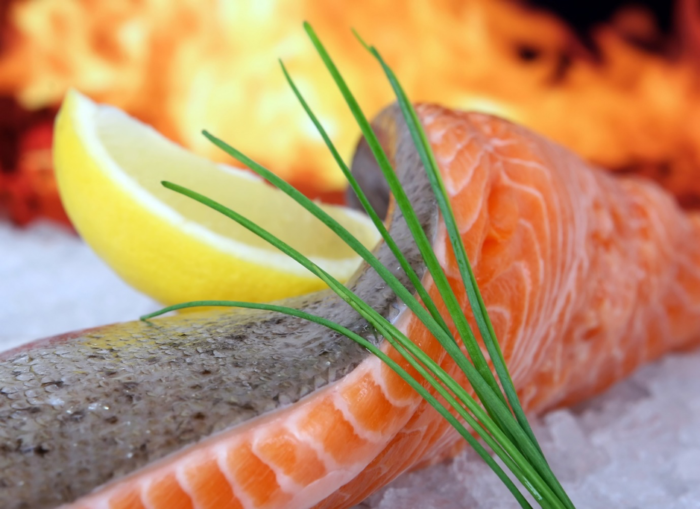
Kieran Sharpe – Sports SME
We all have a workout regime and nutrition schedule but do you have a recovery routine / schedule? And how do you timetable recovery?
The first in this series focuses on post work out nutrition.

To help replenish stores of energy and assist in the body’s recovery post workout nutrition is extremely important. You cannot out train a bad diet and you cannot perform on poor fuel choices.
To produce energy during exercise, muscles use glycogen stores. In addition to this microscopic damage will occur in muscle fibres. Correct nutrition will support growth and repair.
Attention needs to be paid to post work meals to support physiological changes that occur during workouts and training sessions. This in turn will support the success of the next training session.
To optimise performance and physiological gains from training what are the best post work out meals to have?
Look for protein rich foods.
Muscle fibres break down during exercise and the rate of breakdown will vary from one person to another from those training to maintain a healthy lifestyle to top world class athletes.
The description of muscle fibres tearing and glycogen levels depleting may sound like unnecessary stress or dangerous stress to place on the body. However, it is the primary mechanism that drives muscle hypertrophy and physical strength.
For optimum repair to take place the body requires two elements:
Firstly, hormonal stimulation – human growth hormone, insulin-like growth factor, thyroid hormone and the availability of the building blocks to construct the muscle fibres – essential and non-essential amino acids. Optimum sleep and other recovery strategies also influence the efficiency of this process. Apart from this, the body should automatically initiate this process with no direct input from you. However, if you suspect you may have a hormone deficiency you may want to consult your GP.
The second element is the consumption of sufficient quantities of protein in your diet, to support muscle hypertrophy. You do not need to purchase supplementation or consume a monstrous level of chickens to attain this.
A well-balanced diet with adequate amounts of protein will provide the body with the necessary amino acids to repair the damaged tissues and build dense strong muscles. An important point to be aware of is that unless you take extreme measures, strength training and protein consumption will not make you unsightly more muscular.
National guidelines recommend consuming 0.14–0.23 grams of protein per pound of body weight (0.3–0.5 grams/kg) shortly after working out.
There are two broad stereotypes between genders when it comes to the January, New Year, New Me mentality. For the first stereotype: don’t start a training regime and then restrict your food consumption. Not consuming sufficient amounts of protein will severely impact your recovery and future performances. Post work out, the muscles are in dire need of amino acids to start the process of tissue repair.
Your body can only process so much protein in one sitting. Anything over that will be excreted by the body, so consuming excessive protein supplements will prove to be an expensive toilet ritual.
For those who want to bulk up, the same rule applies, in that unless you are taking extreme measures in your training and lifestyle, I am sorry to say, nope, you will not look like Dwane Johnson simply by lifting some weights and eating pancakes and a protein bar.
If you start to read healthy lifestyle articles as we approach January and into 2022 they may lead you to think either of Protein as the devil himself or conversely, of carbohydrates as the demons of hell.
Nothing can be consumed apart from an organic, appropriately sourced cabbage leaf that is not seasoned or heated in any way.
Those of us who are more enlightened will know it is crucial to replenish stores of carbohydrates.
Here comes the ‘complicated’ science: during exercise, glycogen ‘glucose stores’ get depleted and you need to consume carbs to replenish your stores.
That’s it!
Depending on the activity the rate of depletion varies. Endurance sports consume glycogen faster than strength training. You may need to consume more carbs if you are into running, swimming, or cycling.
Consuming 0.5–0.7 grams of carbs per pound (1.1–1.5 grams/kg) of body weight optimises the process of glycogen resynthesis.
A common misconception is that eating fats after working out inhibits the absorption of nutrients. Fats may slightly slow down the absorption of your post-workout meal; however, they do not reduce its benefits. Ingesting a high-fat meal after working out does not interfere with glycogen synthesis.
The inclusion of poly- and mono-unsaturated fatty acids in your diet is very important to optimize your workout.
The effects of fish oil on post-exertional recovery may reduce inflammation and the symptoms of delayed-onset muscle soreness (DOMS).
Antioxidants assist your body to neutralize the harmful effects of reactive oxygen species, which wreak havoc on the vast majority of organs, including the cardiovascular and musculoskeletal systems. Consuming antioxidants after high-intensity exercise is important. During periods of intensified training, during acute bouts of intense endurance exercise lasting several hours and in the early recovery period, moderate and timely limited antioxidant supplementation may be needed.
Correct post work out nutrition can positively support cardiac function. The relationship between the heart and exercise is reciprocal. Training your muscles will improve cardiac function while a healthy cardiovascular system optimizes your performance.
Some food choices to support optimum heart function include; hemp seeds, peanut butter, safflower oil, herring, oysters, mackerel, sardines, salmon, cod liver oil, walnuts and sunflower seeds. Including these foods in your diet will reduce oxidative stress in the coronary artery, which improves myocardial irrigation, and subsequently, your physical performance next time you work out.
Positive sources of fibre choices create a sensation of fullness, which means you will consume fewer calories than you normally do.
I do not support the term super foods. All food is super and supports optimum body functions. However, I am always personally drawn to blueberries which have vitamins, carbohydrates, and minerals that assist with increasing your energy levels and resetting your metabolism.
Omega-3 and omega-6 fatty acids are plentiful in salmon, as well as other kinds of fish. Unsaturated triglycerides found in salmon enhance the production of triphosphate adenosine (ATP) and boost metabolism.

To support a long-term training regime or initiate a new one, you must recognise the importance of post work out meals – foods that will replenish the body’s stores and boost recovery.
It is not complex science, and you may be already consuming a positive diet and look forward to including some more of the elements discussed, rather than the typical reduction or restriction in diets.
I personally always consult colleagues in emerging ideologies surrounding nutrition and performance and you may have to do some experimenting before reaching the optimal combination of foods and proportions.
I hope I have gone some way to demystifying nutrition and training.